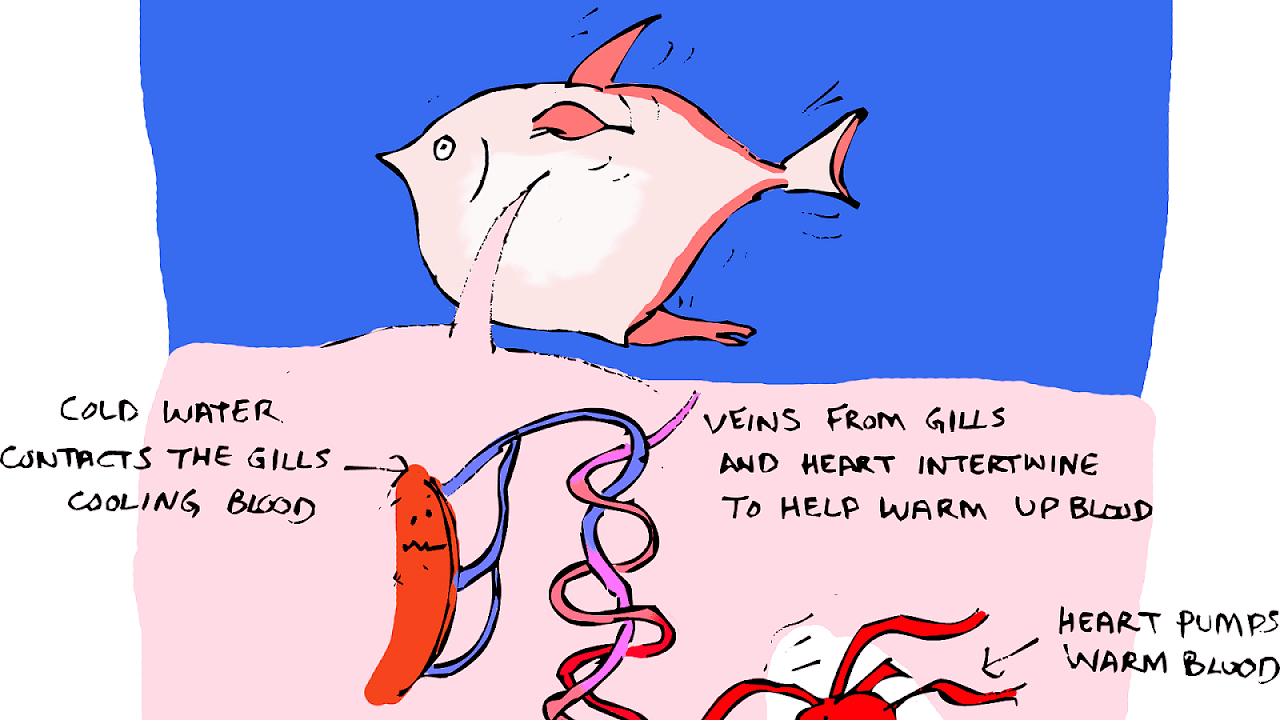
Warm-blooded animal species can maintain a body temperature higher than their environment. In particular, homeothermic species maintain a stable body temperature by regulating metabolic processes. The only known homeotherms are birds, mammals and the Opah fish. Other species have various degrees of thermoregulation.
Animal body temperature control varies by species, so the terms "warm-blooded" and "cold-blooded" (though still in everyday use) suggest a false idea of there being only two categories of body temperature control, and are no longer used scientifically.

Maps, Directions, and Place Reviews
Terminology
In general, warm-bloodedness refers to three separate categories of thermoregulation.
- Endothermy is the ability of some creatures to control their body temperatures through internal means such as muscle shivering or increasing their metabolism (Greek: ????? endon "within" ????? therm? "heat"). Some writers restrict the meaning of endothermy to mechanisms that directly raise the animal's metabolic rate to produce heat. The opposite of endothermy is ectothermy.
- Homeothermy maintains a stable internal body temperature regardless of external influence and temperatures. The stable internal temperature is often higher than the immediate environment (Greek: ?????? homoios "similar", ????? therm? "heat"). The opposite is poikilothermy. Mammals and birds are homeothermic.
- Tachymetabolism maintains a high "resting" metabolism (Greek: ????? tachys/tachus "fast, swift", ??????????? metaballein "turn quickly"). In essence, tachymetabolic creatures are "on" all the time. Though their resting metabolism is still many times slower than their active metabolism, the difference is often not as large as that seen in bradymetabolic creatures. Tachymetabolic creatures have greater difficulty dealing with a scarcity of food.
Are Fish Warm Blooded Or Cold Blooded Video
The variety of thermoregulation types
A large proportion of the creatures traditionally called "warm-blooded", like birds and mammals, fit all three of these categories (i.e., they are endothermic, homeothermic, and tachymetabolic). However, over the past 30 years, studies in the field of animal thermophysiology have revealed many species belonging to these two groups that do not fit all these criteria. For example, many bats and small birds are poikilothermic and bradymetabolic when they sleep for the night (or, in nocturnal species, for the day). For these creatures, the term heterothermy was coined.
Further studies on animals that were traditionally assumed to be cold-blooded have shown that most creatures incorporate different variations of the three terms defined above, along with their counterparts (ectothermy, poikilothermy, and bradymetabolism), thus creating a broad spectrum of body temperature types. Some fish have warm-blooded characteristics, such as the opah. Swordfish and some sharks have circulatory mechanisms that keep their brains and eyes above ambient temperatures and thus increase their ability to detect and react to prey. Tunas and some sharks have similar mechanisms in their muscles, improving their stamina when swimming at high speed.

Heat generation
Body "heat" is generated by metabolism. This refers to the chemical reactions cells use to break down glucose into water and carbon dioxide and, in so doing, generate ATP (adenosine triphosphate), a high-energy compound used to power other cellular processes. Muscle contraction is a type of metabolic process that generates heat energy, and heat is also generated through friction when blood flows through the circulatory system.
All organisms metabolize food and other inputs, but some make better use of the output than others. Like all energy conversions, metabolism is rather inefficient, and around 60% of the available energy is converted to heat rather than to ATP. In most organisms, this heat is simply lost to the environment. However, endothermic homeotherms (the animals generally characterized as "warm-blooded") both produce more heat and have better ways to retain and regulate it than other animals. They have a higher basal metabolic rate, and also a greater capacity to increase their metabolic rate when engaged in strenuous activity. They usually have well-developed insulation in order to retain body heat, fur in the case of mammals and feathers in birds. When this insulation is insufficient to maintain body temperature, they may resort to shivering--rapid muscle contractions that quickly use up ATP, thus stimulating cellular metabolism to replace it and consequently produce more heat. In general, in hot environments, they use evaporative cooling to shed excess heat, either by sweating (some mammals) or by panting (many mammals and all birds)--in general, mechanisms not present in poikilotherms.

Defense against fungi
It has been hypothesized that mammals and birds evolved warm-bloodedness as a defense against fungal infections. Very few fungi can survive the body temperatures of warm-blooded animals. By comparison, insects, reptiles, and amphibians are plagued by fungal infections.
Source of the article : Wikipedia


EmoticonEmoticon